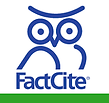SEARCH
these resources first
Reference Resources
These resources are good places to start gathering background information
Online Databases
These resources will help you find more detailed and in-depth information in articles from magazines, newspapers, primary sources, etc.
Username: montgomeryCOUNTY!
Password: montgomeryCOUNTY!
Reliable Web Sites
This extensive list will lead you to sites you can count on to have reliable information
-
National Archives (Try searching "NHD"
-
US Government Services and Information (government documents and pictures)
-
The American Presidency Project (archived documents pertaining to the presidency)
-
The World Digital Library (preservation of important events in worldwide history)
Find Images for Your Project

Username: mcps Password: mcpsmd
(Pictures can count as primary source documents!)

Primary Sources
You will need to cite both PRIMARY and SECONDARY sources in your project
-
Primary Sources - Raw and unedited sources that give a firsthand account of a specific event from the time period when it occurred. CLOSEST TO THE ORIGIN OF INFORMATION. (Examples: diary entries, correspondences, photographs, memoirs, historical newspapers, speeches, cartoons, videos, artifacts, etc.)
-
Secondary Sources - These give an overview of the topic. Often analyzing, interpreting, or summarizing. RELATE TO INFORMATION THAT ORIGINATED ELSEWHERE. (Examples: reference/encyclopedia articles, textbooks, magazine articles, etc.)

Primary sources: US History
-
Digital Public Library of America: Sets of primary sources by topic. Include US Domestic Affairs, US Foreign Policy and Debate and Diplomacy Abroad.
-
Docs Teach (National Archives): sets of primary sources by broad topic
-
Gilder Lehrman: browse by time period or topic
-
Smithsonian History Explorer--search on the right side of the screen
-
Chronicling America: Library of Congress--do an advanced search of newspapers to narrow down by keywords and dates
-
Library of Congress general search--use the search box at the top to put in your topic and keyword
-
LIFE Magazine Photo Archive--search photos by keyword and date

Subject-Specific
Primary Source Sets from the Library of Congress
-
Alexander Hamilton (Plan of new government, Federalist Papers)
-
Child Labor (Labor reforms, anti-child labor)
-
Civil Rights Movement (Civil rights reforms, reactions to reforms)
-
Civil War: Nation Moves Toward War, 1850-61 (Reactions to pro/anti-slavery movements, abolition, efforts at political reform)
-
Constitution (Creating new government and debates about)
-
The Great Migration (Reactions to demographic changes in the United States)
-
Immigration Challenges for New Americans (Reactions to changes in immigrant populations)
-
Industrial Revolution in the United States (Wide-reaching change in how the economy works and how society is organized)
-
Informational Text (Sources showing reactions to different historical events and ideas)
-
Inventions and Innovations (Changes to how things work and reaction to changes)
-
Inventive Wright Brothers (Changes to how things work, ideas about how things work)
-
Japanese American Internment (Reactions to and experiences of internment)
-
Jim Crow and Segregation (Calls for reform, reaction to reform efforts)
-
LGBTQ Activism and Contributions (Calls for reform, reaction to reform efforts)
-
Mass Persuasion Campaigns (Campaigns representing reaction to an event/issue, including calls for reform)
-
NAACP: A Century in the Fight for Freedom (Calls for reform, reaction to reform efforts)
-
The New Deal (Government reform, in reaction to economic conditions)
-
Political Cartoons and Public Debates (Campaigns representing reactions to an event or issue, including calls for reforms)
-
Reconstruction (Calls for and examples of reform, rebuilding, reaction to reform efforts)
-
Rosa Parks (Civil rights reforms, roles of individuals and groups)
-
Transportation (Reforms and efforts to improve)
-
Women’s Suffrage (Voting reforms, reaction to proposed reforms)
-
World War I (Social reactions to aspects of WWI)

While NHD does not specify how many sources you must use in your research, a suggested number would be around 20-25. Additionally, you should have around TWICE AS MANY PRIMARY SOURCES AS SECONDARY SOURCES.






